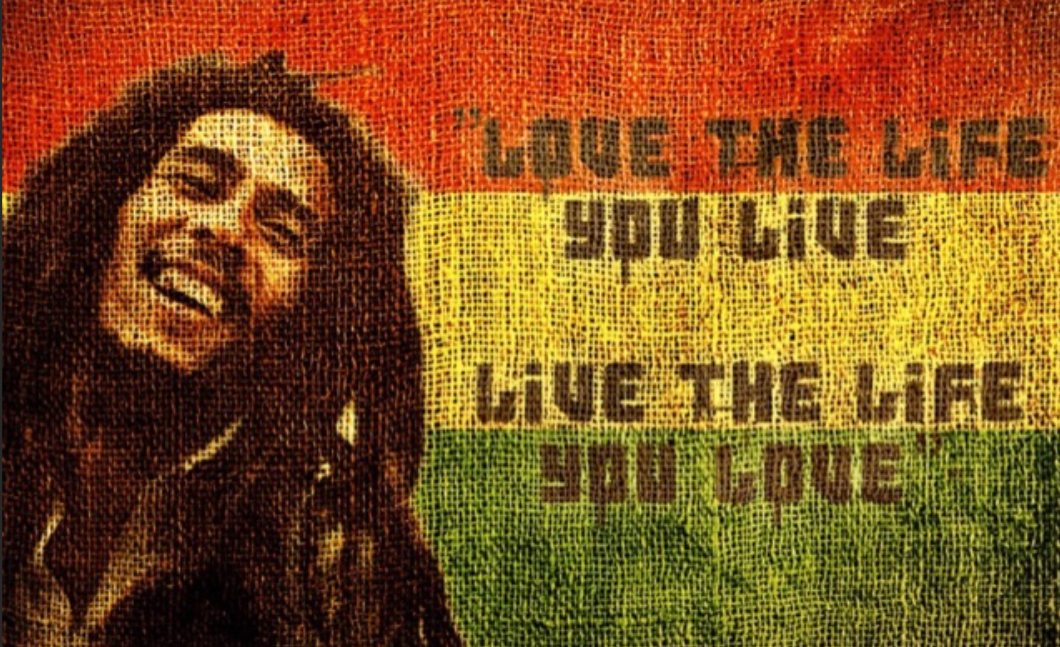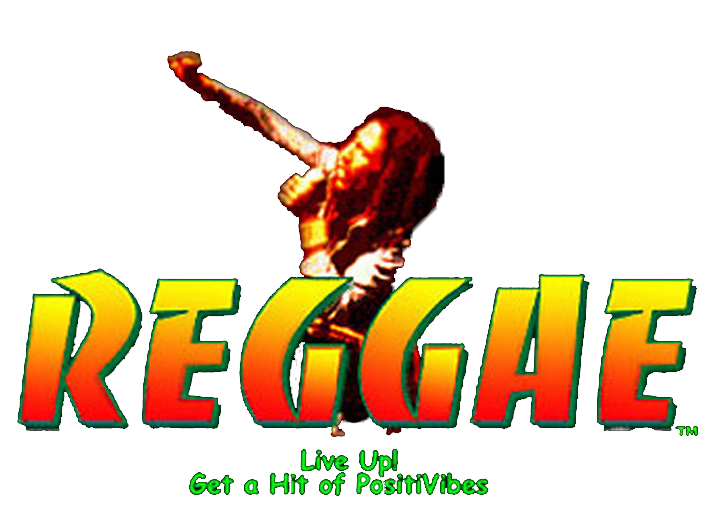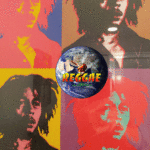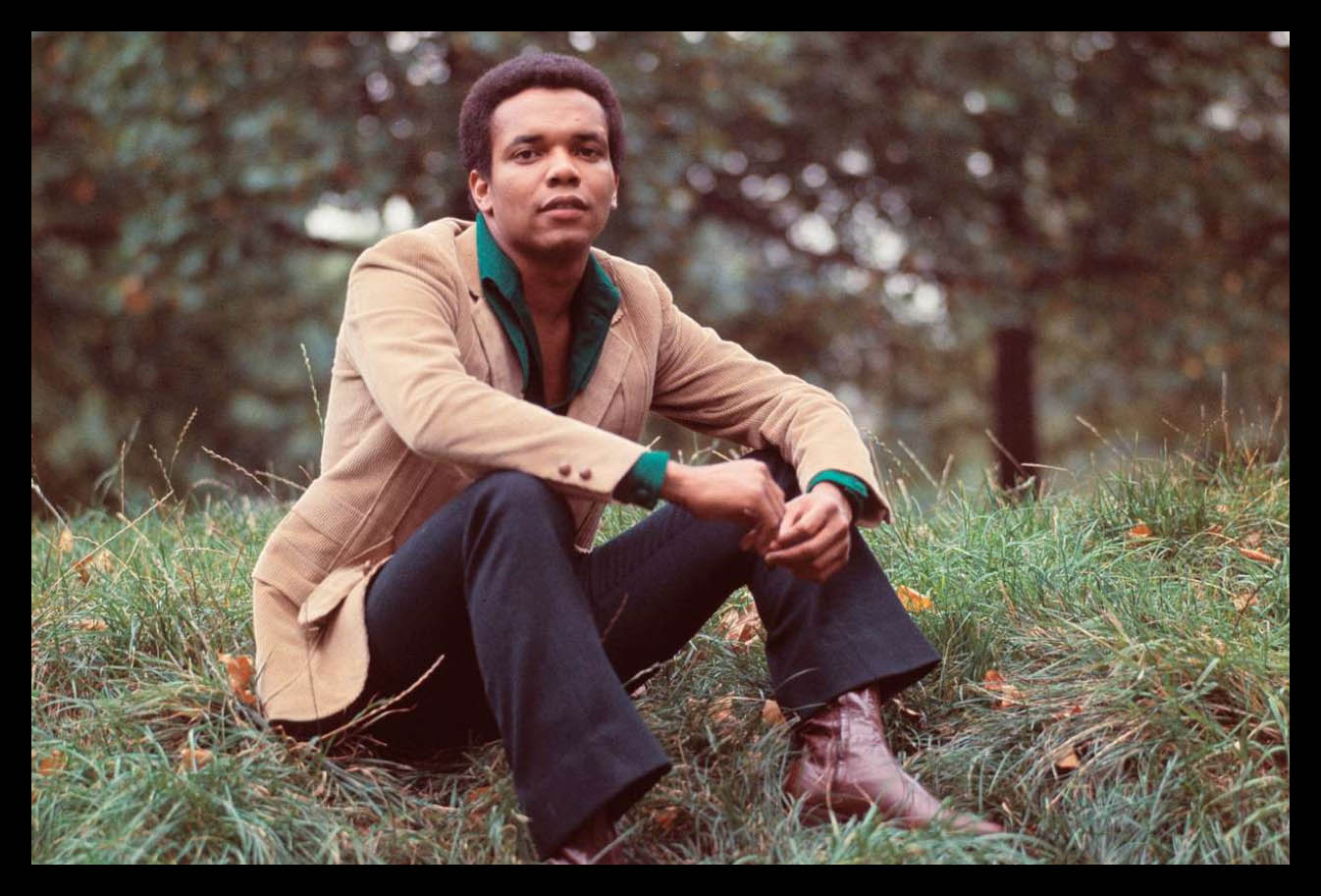
The ‘subversive spirituality’ of Bob Marley is still being overlooked
Story by Analysis by John Blake, CNN
Dean MacNeil couldn’t eat. Couldn’t sleep. He was on emotional autopilot because something “tore a hole in the soul of my family and me.”
It was the summer of 1991, and MacNeil had taken a road trip from Connecticut to Vermont with his younger brother, Scott. They hiked, jet-skied and spent much of the time listening to Scott’s favorite musician, reggae superstar Bob Marley.
A couple of weeks after the trip, a phone call came at midnight. Scott had been killed in a car accident. He was a passenger in another teenager’s car when it slammed into a tree. He was on his way home from a reggae concert. MacNeil was devastated.
He found refuge, though, in Marley’s music. He started listening to Marley’s songs again and discovered something: Biblical verses were scattered like gems through virtually every one of them. The lyrics weren’t just nods to the Bible but lengthy scriptural quotations that called the listener to believe that no matter what kind of “changes” and “rages” they were experiencing, they could “never be blue,” as Marley says in “Forever Loving Jah,” a nod to the Rastafarian religion’s name for God.
“That accident really sent my sister, mom, dad and myself into a tailspin,” MacNeil says today. “But Bob Marley’s music is what got us through. It helped us deal with the grief and the despair by listening to these messages of hope and perseverance. I went to the classroom of Bob Marley, because my very survival depended on it.”
MacNeil found new meaning in the Marley adage: “You never know how strong you are until being strong is your only choice.” He started leading Bible studies at his church and completed a master’s degree in theology. He also became a musician and author of a book, “The Bible and Bob Marley: Half the Story Has Never Been Told.”
Today, as Marley’s life is celebrated in a new hit movie, MacNeil and others make a bold claim: Marley’s spiritual impact is as significant as his musical legacy. The two are, in many ways, inseparable. These Marley fans and scholars say it’s time to stop glossing over or editing out Marley’s “subversive spirituality.”
“The Bible was as important to Marley’s music as his guitar,” MacNeil says. “You really need to know the Bible to understand Marley’s message.”
Marley’s lyrics are saturated with Biblical verses
That’s not the typical message about Marley’s legacy that his fans get today. Since Marley’s untimely death in 1981, he has been defined as a musical icon.
His smiling visage adorns T-shirts, bags, key chains, scented candles, lip balm, iPhone cases and posters in college dorm rooms. His album, “Exodus,” was selected as the best album of the 20th century by Time magazine. His song, “One Love” was named the song of the century by the BBC. Some critics even say Marley was the most influential songwriter of the 20th century.
This is the version of Marley that primarily appears in the current hit film, “Bob Marley: One Love.” It offers a glimpse into Marley’s life in the late ’70s, when he became a symbol of reconciliation in his home country of Jamaica.
But there’s another reason why many people don’t see Marley as a religious figure. There’s a less savory aspect to his personal life that the current film only touches on: Marley was a married man who reportedly fathered at least 11 children, some of them outside of his marriage to Rita Marley.
Kingsley Ben-Adir as Marley in “Bob Marley: One Love,” now in theaters. – Chiabella James/Paramount Pictures© Chiabella James/Paramount Pictures
So how can a man who fathered illegitimate children and smoked marijuana be considered a holy man?
The answer can be found in the way that Marley lived and died. Start with his music. His musical career began and ended with a Biblical verse.
Marley would often start concerts by reciting Biblical passages, MacNeil says. His first published song, “Judge Not,” recorded when he was 17, was based on Matthew 7:1 — a passage in which Jesus warned his followers to “Judge not, that ye be not judged.”
The last track on his final album was “Redemption Song” (“How long shall they kill our prophets while we stand aside and look?”). It was based on Luke 13:34, (“Jerusalem, Jerusalem, you who kill the prophets and stone those sent to you”).
“His faith was central not only to his music but to what Rastafarians would call his ‘livity,’ which is his whole lifestyle, his whole approach to life,” says Vivien Goldman, a British journalist and educator who befriended Marley while working as his publicist.
Marley invented a new species of musician: the holy rocker. Other musicians like Bob Dylan and Johnny Cash sang about their faith. But none cherished the Bible like Marley. Several biographers have noted that while on tour, Marley would often withdraw to a secluded spot on his bus to ponder scripture. He would then return to the rest of his bandmates and debate — not over women or song credits — but the meaning of biblical verses.
There are classic stories of musicians who were inseparable from their instruments. Jimi Hendrix supposedly slept with his guitar. Marley had the same attitude toward his Bible.
Goldman says that Marley never went anywhere without his weathered King James Bible, which had a photocopied portrait of the Lion of Judah in full regalia pasted on the cover, and photos of Haile Selassie I, the former emperor of Ethiopia, on the inside cover. Rastafarians consider Selassie, who died in 1975, as the second coming of Jesus, a Black messiah.
“His spiritual practice was absolutely a crucial part of his life,” says Goldman, author of “The Book of Exodus: The Making and Meaning of Bob Marley and the Wailers’ Album of the Century.”
“He would make time no matter what — if he was in a busy airport, he would retreat to the side so he could sit and study his Bible.”
For some, God and the Bible are symbols of oppression. Both have been used to justify slavery, homophobia and imperialism. But Marley saw God as a liberator, a deliverer from political and personal oppression.
In his song “Exodus,” he sang: “Jah come to break downpression, rule equality, wipe away transgression, set the captives free.”
MacNeil says it’s almost impossible to listen to any Marley song without bumping up against the Bible. He examined 83 Marley songs and identified 137 Biblical references, comprised of 39 quotations and 98 allusions.
Marley’s song, “Forever Loving Jah,” is a prime example. When Marley sings, “Because only a fool lean upon his own misunderstanding,” he’s quoting a scripture from Proverbs 3. And Marley’s album “Exodus” is named after a famous book in the Bible, revered by Jews and Christians.
“He’s not just quoting the Bible,” MacNeil says. “He’s actively engaged with it. He’s interpreting it. He’s making it relevant to his own experience. He’s making it relevant to a wide audience.”
Rastafarians beat on African drums to mark the 59th birthday of late reggae legend Bob Marley on February 6, 2004, in Kingston, Jamaica. – Collin Reid/AP© Provided by CNN
He was the apostle of the Rastafari religion
Marley also made something else relevant to a wider audience: the Rastafari religion. No musical figure has, arguably, done more to popularize a religion than Marley. His beliefs revolved around Rastafarianism.
But in the years since Marley’s death, his religious and political beliefs have been sanded down, reduced to a fuzzy, marijuana-inspired haze call for “One love, one heart. One destiny.” Some critics call this the “Disneyfication” of Marley’s legacy.
But the Rastafari religion has a much gritter and more defiant edge. It was spawned by the tremendous suffering Afro-Jamaicans experienced for centuries. The slave trade, for example, was even more lethal in Jamaica, where Marley was born, than the Deep South of the US. More than twice as many slaves were shipped to Jamaica alone than all thirteen North American colonies. Most were tortured, raped and worked to death, according to Adam Hochschild, author of “Bury the Chains,” a history of the abolition movement in the United Kingdom.
“The Caribbean was a slaughterhouse,” Hochschild wrote, describing the region’s slave trade.
The grinding poverty, suffering and political disenfranchisement of Afro-Jamaicans persisted under British colonial rule. Marley was born in rural Jamaica to an Afro-Jamaican teenage mom and a White father. It is impossible to understand him and the Rastafari faith, which emerged in Jamaica during the 1930s, without knowing the country’s violent history.
“Rastafari is a religion of resistance that blended Afrocentrism, Judaism, and Christianity,” says Deepak Sarma, a religious studies professor at Case Western Reserve University in Ohio.
“Though it is often categorized as a religion, it is also a revolutionary ideology to right the wrongs of British imperialism, the slave trade, and colonization of Jamaica and other Caribbean islands.”
Marley saw his music as a divine calling.
“God sent me on earth. He send me to do something, and nobody can stop me,” he once said. “If God want to stop me, then I stop. Man never can.”
Rastafarians, though, are known primarily by many casual observers for two elements of their religion: dreadlocks and the smoking of marijuana. The dreadlocks are inspired by an Old Testament passage from Leviticus 21:5, (“They shall not make baldness upon their head, neither shall they shave off the corner of their beard, nor make any cuttings in the flesh”). Marijuana, or “ganja,” was seen as a sacrament for Rastafarians to deepen spiritual awareness.
Marcus Garvey was a Jamaican activist whose teachings on Black self-pride and self-reliance are credited with inspiring the formation of the Rastafarian religion. – MPI/Getty Images© Provided by CNN
If there is a founder of the Rastafari religion, many point to Marcus Garvey, a Black Jamaican and activist who preached Black self-reliance, self-pride and led a “Back to Africa” movement in the first half of the 20th century. Selassie is also a central figure to Rastafarians in ways that puzzle some outsiders: How can Rastas worship a Black political figure who was also seen by some as a dictator?
Goldman, Marley’s former publicist, recalled asking Marley about the wisdom of worshipping Selassie. She wrote that he was stunned by her question, asking:
“So, you want me to worship a white god?”
The universality of Marley’s spiritual message is why it endures
If an outsider fixates on the bitterness of Marley’s quote about a White god, it’s easy to fall for the myth that Rastafarians demonize White people. But one of the reasons Marley’s spiritual beliefs still resonate is his religion didn’t go that route.
Marley didn’t limit oppression to one color.
“I can’t be prejudiced against myself,” he once said when someone asked him if he was prejudiced against White people.
“My father was a White and my mother Black, you know. Them call me half-caste, or whatever. Well, me don’t dip on the Black man’s side nor the White man’ side. Me dip on God’s side, the one who create me and cause me to come from Black and White.”
Marley didn’t just live for his beliefs. He also died, in part, because of them.
In 1977, Marley visited a doctor after noticing a blackened lesion under his big toenail. He was diagnosed with a rare form of skin cancer. The doctor advised Marley to amputate his toe to prevent the spread of cancer. But he refused because he thought it would violate the Rasta prohibition against the “cutting of the flesh,” and opted for a less invasive procedure.
The cancer eventually spread. Marley died on May 11, 1981, in Miami while trying to return to his beloved Jamaica for his final days. A man who was a fitness and health food fanatic died at 36.
Children play in the Trench Town neighborhood of Kingston, Jamaica on May 18, 2019. In the 1960s, Trench Town was known as the Hollywood of Jamaica and is the birthplace of reggae music, as well as the home of Bob Marley. – Angela Weiss/AFP/Getty Images© Provided by CNN
Marley was honored with a state funeral in Jamaica at the National Arena in Kingston. He was buried with his favorite Gibson Les Paul guitar and his personalized Bible, opened to Psalm 23, which begins with, “The Lord is my shepherd, I shall not want.”
In an interview several years before his death, Marley said a person achieves a sense of immortality by having a right relationship with God.
“I don’t believe in death, neither in flesh nor in spirit . . . Death does not exist for me. I truly know God,” Marley said.
His musical legacy has found an afterlife. Marley’s stature on the international stage has only grown in the decades since his death. It’s ironic that Marley, a fierce critic of capitalism and materialism, posthumously generated $16 million through his estate in 2023, according to Forbes magazine, right behind John Lennon of the Beatles.
That type of immortality, of course, wasn’t what Marley was talking about. He alluded to an “ever-living” legacy. It’s the faith of an abandoned kid from the slums of Jamaica who knew hardship and abandonment but assured his listeners in his classic “Three Little Birds,” “Don’t worry about a thing, ‘Cause every little thing is gonna be alright.”
Somewhere in the world right now someone is playing a Bob Marley song to help them get through a difficult time — the kind that tears a hole in someone’s soul.
Marley was right. When it comes to his music and his spiritual message — death does not exist.
He is more alive today than ever before.
John Blake is the author of “More Than I Imagined: What a Black Man Discovered About the White Mother He Never Knew.”
.







